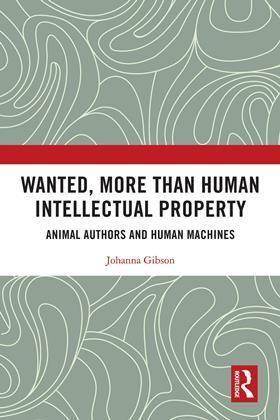Wanted, More than Human Intellectual Property: Animal Authors and Human Machines
Johanna Gibson
£185, Routledge
★★★✩✩
When David Slater set up his camera in a jungle to capture wildlife images, he probably didn’t expect to make legal history. In the event a macaque – later nicknamed Naruto – took a photo of himself. Once published, Naruto’s toothy grin captured the public imagination. When it was later posted to Wikipedia, Slater requested that it be removed. The site refused on the basis that he had no copyright in the image. An animal rights group brought a legal claim asserting copyright on Naruto’s behalf. The claim failed, with the US Ninth Circuit Court of Appeals holding that US law did not allow non-human animals to hold copyright.
The ‘monkey selfie’ underpins this work, which explores the nature of ‘authorship’ in intellectual property law. Gibson argues ‘authorship’, which she calls fundamentally ‘anthropocentric’, focuses on the intentions of a work’s creator – who must have made an original intellectual product – and whether they intend to be an author. She links it with sentience and consciousness, which are often seen as signifiers of personhood, and which, she argues, assume that only humans may be authors.

The work is impressively multi-disciplinary, covering philosophy, behavioural science and critical legal theory. Drawing on research into animal behaviour, she argues ‘authorship’ should be based on whether the creator is capable of self-expression and play – a creative mental process – potentially extending it to non-human animals. She further argues that this reimagining of ‘authorship’ could bring AI within the scope of ‘author’.
The argument transcends the narrow intellectual property question it ostensibly addresses – essentially, Gibson is arguing for a redefinition of ‘personhood’, based on the capacity for play and creativity, rather than the traditional cognitive criteria of consciousness, rationality, self-awareness and the like. In short, if Naruto can hold intellectual property rights, is he entitled to other rights of the kind the law recognises?
I remain unconvinced. Cognitive capacity, such as the ability to communicate and undertake self-motivated activity, seems to give rise to a capacity for creative play, rather than the capacity for play itself being a factor in personhood. As an argument for changes to intellectual property, it may have some merit, but a redefinition of ‘personhood’ is an overreach.
An interesting work, if somewhat heavy going at times.
James E Hurford is a solicitor at the Government Legal Department, London































No comments yet